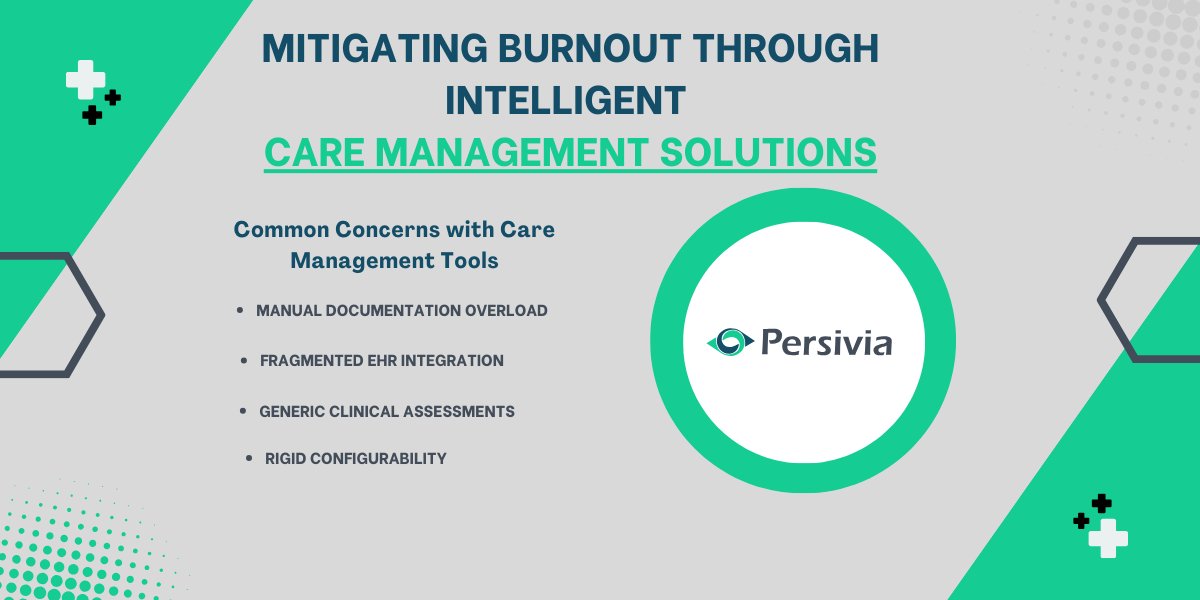
Maximizing ROI: A Comprehensive Guide to NetSuite Cost Management with Efficient Connector Integration
In today's dynamic and competitive business landscape, maximizing Return on Investment (ROI) is an imperative goal for organizations across industries. For businesses using NetSuite, a robust and comprehensive cloud-based Enterprise Resource Planning (ERP) system, achieving optimal ROI is essential and highly achievable. This blog will delve into the significance of ROI optimization within the context of NetSuite ERP and emphasize the pivotal role of efficient connector integration in realizing this objective.
Unlocking NetSuite's Potential
NetSuite is renowned for its capability to streamline operations, enhance productivity, and boost profitability. However, organizations must focus on effective cost management and operational efficiency to unlock their full potential and extract maximum value from this versatile ERP system. This is where ROI optimization comes into play.
The Role of Connector Integration
While NetSuite offers an extensive suite of features and functions, its true power is harnessed when it seamlessly integrates with various other systems and platforms used within an organization. This integration is made possible through connectors, which facilitate the smooth data flow between NetSuite ERP and other essential tools such as e-commerce platforms, POS systems, online marketplaces, and third-party logistics suppliers.
Why Efficient Connector Integration Matters
Efficient connector integration is the linchpin for businesses seeking to optimize ROI with NetSuite. It eliminates manual data entry, minimizes costly errors, and accelerates data transmission. Organizations can centralize their critical data by connecting disparate systems and automating processes, ensuring accuracy and accessibility while avoiding bottlenecks associated with outdated methods like spreadsheets and email.
So, let's dive deeper into the world of NetSuite connectors and discover how they hold the key to maximizing ROI and unlocking the full potential of your NetSuite investment.
Understanding NetSuite Costs
When considering the implementation of NetSuite within your organization, it's essential to have a comprehensive understanding of the various cost components associated with this powerful ERP solution. NetSuite pricing has a range of structures, licensing options, and additional fees contributing to the overall cost of deploying and using the platform.
Licensing Fees
One of the primary NetSuite cost components is the licensing fee. NetSuite typically operates on a subscription-based model, where users pay a recurring fee to access and use the platform. The licensing fee can vary based on several factors:
User Count
The number of users who require access to NetSuite will significantly impact licensing costs. Typically, organizations pay a per-user fee, meaning that the more users you have, the higher your licensing costs will be.
Module Selection
NetSuite offers a variety of modules and functionalities tailored to different business needs, such as financial management, inventory management, CRM, and more. Licensing costs can vary based on the specific modules your organization requires.
Advanced Features
NetSuite also provides advanced features and capabilities that may come with additional licensing fees. These features are often optional and can be added based on your organization's needs.
Implementation Costs
Implementing NetSuite effectively within your organization requires careful planning, configuration, and customization to align the platform with your business processes. Implementation costs can vary widely based on factors like the complexity of your requirements, the extent of customization needed, and the expertise of the implementation team.
Consulting Services
Many organizations work with NetSuite implementation partners or consultants who provide expertise in configuring and customizing the platform. The cost of these consulting services can be a significant part of the implementation budget.
Data Migration
If you are transitioning from another system, migrating existing data into NetSuite is critical. Data migration services may incur additional costs.
Training
Proper training is essential to ensure your team can effectively use NetSuite. Consider the cost of training sessions and materials as part of your implementation expenses.
Ongoing Subscription Expenses
Beyond the initial implementation, you'll incur subscription expenses to maintain access to NetSuite. These ongoing costs are critical to factor into your long-term budget:
Renewal Fees
NetSuite subscriptions typically renew annually or according to the terms of your agreement. Renewal fees are based on the user count and selected modules.
Support and Maintenance
NetSuite offers various support and maintenance plans to address technical issues, updates, and troubleshooting. The level of support you choose will influence your ongoing expenses.
Add-Ons and Upgrades
If your organization requires additional functionality or wishes to upgrade to more advanced features, these add-ons and upgrades will contribute to ongoing costs.
Understanding these cost components will enable your organization to plan effectively and allocate resources accordingly when adopting NetSuite. Keep in mind that while NetSuite requires a financial investment, its benefits in improved efficiency, streamlined processes, and enhanced decision-making can lead to a significant return on investment (ROI).
Challenges in NetSuite Cost Management
While NetSuite offers a powerful platform for businesses to optimize their operations, it's crucial to know the common challenges organizations often encounter when managing NetSuite costs. These challenges can significantly impact both the budget and the overall effectiveness of your NetSuite implementation.
Unexpected Expenses:
Challenge
One of the primary challenges in NetSuite cost management is dealing with unexpected expenses. These expenses can arise from various sources, including unanticipated customization needs, licensing adjustments due to user growth, or the addition of advanced features.
Mitigation
To address this challenge, organizations should conduct thorough planning and assessment before implementation. Collaborate closely with NetSuite implementation partners or consultants to identify potential hidden costs and ensure that your budget accounts for contingencies.
Data Entry Errors
Challenge
Manual data entry errors can lead to costly discrepancies and inaccuracies in your NetSuite system. These errors may occur during the initial data migration or through ongoing data input.
Mitigation
Implement data validation checks and processes to minimize manual data entry errors. Consider using automation tools and integration to streamline data flow between NetSuite and other systems, reducing the need for manual input.
Inefficient Processes
Challenge
Efficient organizational processes can lead to wasted time, increased labor costs, and suboptimal resource utilization. These inefficiencies may manifest as redundant tasks, complex approval workflows, or manual reporting processes.
Mitigation
Conduct a thorough evaluation of your existing processes and workflows. Identify areas where automation and optimization can enhance efficiency. Utilize NetSuite's workflow automation capabilities to streamline approval processes and reporting tasks.
License Optimization
Challenge
Managing NetSuite licenses effectively can be challenging, especially as your organization grows. Over-licensing or under-licensing users can result in unnecessary costs or operational limitations.
Mitigation
Regularly review your user licenses and module subscriptions to ensure they align with your organization's needs. Adjust licenses as user roles change or new employees join or leave the organization. Consider working with a NetSuite expert to optimize your licensing structure.
Training and Adoption
Challenge
Adequate training and user adoption can hinder your organization's ability to leverage NetSuite fully. If your team doesn't use the system efficiently, you may not realize the expected return on investment.
Mitigation
Invest in comprehensive training programs for your staff to ensure they understand how to use NetSuite effectively. Encourage user adoption through ongoing support and communication, emphasizing the system's benefits.
By proactively addressing these challenges in NetSuite cost management, your organization can optimize its NetSuite investment and maximize the value derived from the platform. Overcoming these obstacles requires careful planning, ongoing monitoring, and a commitment to continuously improving your NetSuite implementation.
The Power of NetSuite Connectors
NetSuite Connectors
Importance of Integration
NetSuite connectors are specialized tools designed to facilitate the seamless data exchange between NetSuite and other software systems, applications, or platforms. They serve as the bridge that connects NetSuite's robust ERP capabilities with various components of your business ecosystem.
Enhancing Cost Management
NetSuite connectors are instrumental in cost management by ensuring that data flows effortlessly between NetSuite and other essential business tools. This integration minimizes data silos, reduces manual data entry, and provides real-time access to critical information, contributing to more efficient cost monitoring and control.
Streamlining Data Integration
Efficient Data Flow
NetSuite connectors enable efficient data transfer between NetSuite and external systems, such as eCommerce platforms, CRM software, or third-party logistics providers. This streamlined data integration ensures accurate and up-to-date information is readily available for cost analysis and decision-making.
Real-time Updates
With NetSuite connectors, changes made in one system are reflected in real-time across integrated platforms. Any updates, transactions, or adjustments for cost-related activities are immediately visible in NetSuite, allowing for timely cost tracking and reporting.
Automation of Critical Processes
Order Processing
NetSuite connectors automate order processing by seamlessly transmitting orders to 3PLs (third-party logistics providers), suppliers, or warehouse locations. This automation eliminates manual data entry, reducing costly errors and delays in fulfilling customer orders.
Accounting Simplification
NetSuite connectors automate repetitive accounting tasks, such as transaction recording, payables, receivables, and financial reporting. Automating these processes enables businesses to achieve more timely and accurate financial reporting, leading to greater control over financial assets.
Improved Inventory Management
Accurate Inventory Tracking
NetSuite connectors enhance inventory management by accurately tracking products across multiple locations. This includes monitoring reorder points, safety stock levels and enabling precise cycle counts. Integrating inventory data from various channels into NetSuite ensures that cost-related decisions are based on reliable information.
Fulfillment Efficiency
Organizations can streamline operations and optimize fulfillment efficiency by integrating inventory, orders, and fulfillment processes through NetSuite connectors. This results in better cost control and a reduction in operational expenses.
Multi-Channel Commerce
E-commerce and Marketplace Integration
NetSuite connectors allow for seamless integration with eCommerce platforms and online marketplaces. Product listings, orders, customer information, and financial transactions are automatically synchronized between NetSuite and these channels. This integration ensures that cost-related activities, such as sales tax calculations, are consistently and accurately applied.
Point of Sale (POS)
Businesses can connect their point-of-sale (POS) systems with NetSuite through connectors. This integration ensures that product information, pricing, inventory data, and customer details are synchronized, simplifying cost-related transactions and reporting.
Benefits of Using NetSuite Connectors
Improved Inventory Management
NetSuite connectors enhance inventory tracking across multiple locations, optimizing reorder points, safety stock levels, and cycle counts. They simplify the integration of inventory, orders, fulfillment, and returns between NetSuite and other commerce channels.
Automated Order Processing
Clients can expedite and streamline order processing and fulfillment using NetSuite connectors. Orders are automatically transmitted to third-party logistics (3PL) providers, suppliers, or warehouse locations, reducing errors and delays associated with manual operations.
Simplified Accounting
NetSuite connectors eliminate repetitive accounting tasks by automating transaction recording, payables, and receivables management, and closing financial books. This automation results in more timely and accurate reporting, offering better control over financial assets.
NetSuite Connector Features
E-commerce and Marketplace Integration
Seamlessly link NetSuite to eCommerce platforms and marketplaces, automating product listings, order processing, gift certificates, discounts, sales taxes, shipments, tracking, refunds, returns, and cancellations.
Point of Sale (POS) Integration
Connect POS systems with NetSuite to synchronize product data, orders, pricing, shipping details, and inventory. POS orders can be posted as cash sales in NetSuite.
Logistics Integration
Integrate third-party logistics (3PL) providers to optimize order fulfillment, ensuring efficiency and swiftness in processing orders. Orders are sent from NetSuite to 3PL, with shipping and tracking details returned to NetSuite.
NetSuite Connectors Offer
Integration Platform as a Service (iPaaS)
NetSuite connectors are part of iPaaS, a cloud service that facilitates integration between on-premises and cloud-based processes, applications, services, and data. This connectivity empowers businesses to connect NetSuite with various software applications.
User-Friendly Workflows
These connectors provide user-friendly workflows and graphical interfaces for creating integrations and workflows.
API Management Tools
NetSuite connectors come with API management tools for integrating, building and deploying data between servers and NetSuite.
Templated Integration
Many connectors offer pre built templates and libraries for easy integration. For instance, SnapLogic provides a library of ready-to-use "Snaps" or connectors.
Top-Notch Security
NetSuite connectors prioritize security, ensuring the safety of cloud-based data. Regular third-party audits validate the effectiveness of their security measures.
Current NetSuite Connectors
NetSuite connectors are suitable for businesses of all sizes and are compatible with various apps. They facilitate data management by ensuring accurate inventory tracking and automating order processing. Currently, NetSuite connectors integrate with popular apps like Shopify, HubSpot, BigCommerce, Zendesk, Magento, Asana, WooCommerce, Salesforce, Amazon, Slack, eBay, ADP, Okta, and Walmart, offering businesses the tools they need to thrive in today's interconnected digital landscape.
Cost Reduction through Connector Integration
Efficient connector integration offers a multitude of avenues for cost reduction, making it a critical component of effective NetSuite cost management. Here, we delve into specific ways in which connector integration can lead to substantial cost savings:
Elimination of Manual Tasks:
Connector integration reduces the need for manual data entry, a process prone to errors and time-consuming efforts. By automating data transfers, businesses avoid costly mistakes resulting from manual input.
Error Reduction:
Automation through connectors significantly reduces the likelihood of errors in data transfer and processing. Costly errors, such as incorrect pricing, shipment details, or inventory levels, can be minimized, ensuring operational costs stay in check.
Streamlined Order Processing:
Connector integration automates order processing, leading to faster and more efficient fulfillment. This translates to reduced labor costs and decreased fulfillment errors that could otherwise lead to costly returns or customer dissatisfaction.
Timely Financial Reporting:
By automating accounting tasks, connectors enable finance teams to close the books more efficiently. This timeliness enhances financial reporting accuracy and allows businesses to avoid costly delays or penalties associated with late reporting.
Inventory Optimization:
Accurate inventory tracking facilitated by connector integration ensures that businesses maintain optimal stock levels. This minimizes overstocking, which ties up capital, or understocking, which can result in lost sales, which can be costly.
Realizing the Full Potential of ROI with NetSuite
To realize the full potential of return on investment (ROI) with NetSuite, businesses can employ the following strategies while leveraging connectors:
Strategic Integration
Focus on integrating systems and processes that significantly impact cost management and operational efficiency. Prioritize areas where automation can lead to substantial cost savings.
Continuous Monitoring
Regularly assess connector integrations' performance to identify improvement areas. Address any issues promptly to maintain optimal cost control.
Employee Training
Ensure employees are adequately trained to use connector-integrated systems effectively. Well-trained staff can maximize the benefits of automation and data synchronization.
Data Analytics
Leverage the data insights obtained through connector integration to inform decision-making. Use these insights to identify opportunities for cost reduction and operational enhancements.
Scalability
Choose connector solutions that can scale with your business as it grows. Scalable connectors ensure that cost management and efficiency improvements remain effective as your operations expand.
By embracing these strategies and harnessing the power of connector integration, businesses can optimize NetSuite cost management and maximize their ROI, ultimately achieving tremendous financial success and operational efficiency

Law Firm Management: How Technology is Driving Efficiency

Most Popular Social Networks: Dominating Online Platform







